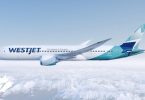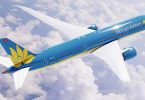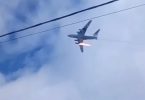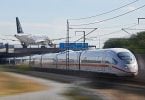U.S.travelers will be chosen on a case-by-case basis to use expedited-screening lines at airports without having to provide more personal information than they now give airlines, the Transportation Security Administration said.
Passengers will be chosen after a background check, before they get to the airport, the agency said in a notice to be published today in the Federal Register.
They won’t have to be enrolled in TSA’s PreCheck program, be a frequent flier, or sign up for U.S. Customs and Border Protection’s Global Entry program, the agency said.
The TSA announced last week it would expand the PreCheck program to 100 airports, from 40 now. It has also evaluated other ways to divert passengers into the expedited-screening lines, including a pilot program with bomb-sniffing dogs.
The agency has set a goal of having 25 percent of U.S. airline traffic using PreCheck by the end of next year, up from about 2 percent last year, to help speed up airport security.
PreCheck allows passengers to avoid full-body scans and some of the rules that have become common at U.S. airport security checkpoints.
Passengers eligible for PreCheck lines go through a streamlined screening similar to those from before the Sept. 11 terrorist attacks. They keep their shoes, belts and light jackets on. Laptops and liquids stay in their bags.
Expanding PreCheck
In July, TSA announced a plan to enroll passengers willing to pay $85 for five years into PreCheck. That kind of enrollment — which will allow more frequent use of the expedited lanes than the program disclosed today — requires an interview and certain personal information, including date of birth, address, height, weight and hair color. That’s the same kind of information required under the U.S. Customs programs.
Under the latest initiative, passengers won’t have to provide personal information beyond their names, date of birth and gender — which they already provide to airlines to check against terrorist watch lists, the agency said.
TSA will incorporate random, unpredictable security measures and no individual will be guaranteed expedited screening, said David Castelveter, an agency spokesman.
Advocates for expanding PreCheck have said eligibility is too restricted, limiting its potential to speed security checks and make screening less invasive for people who pose no risk.






















